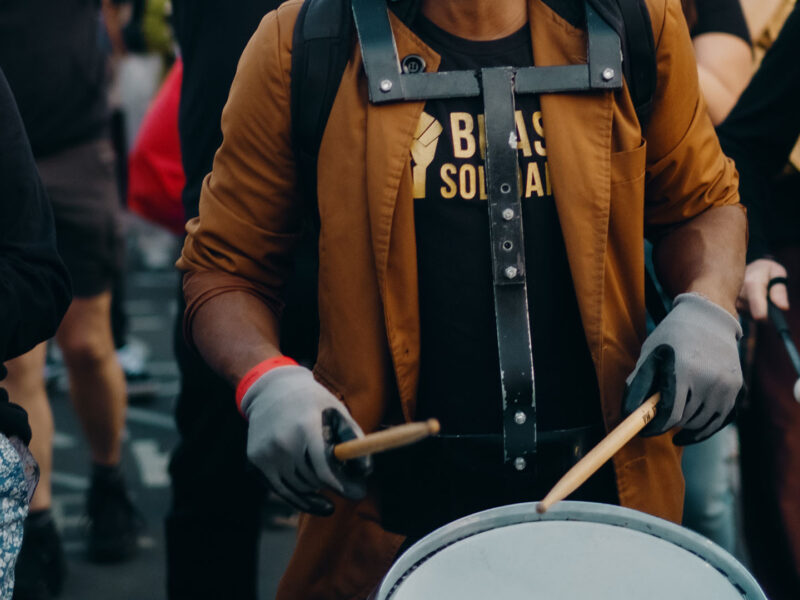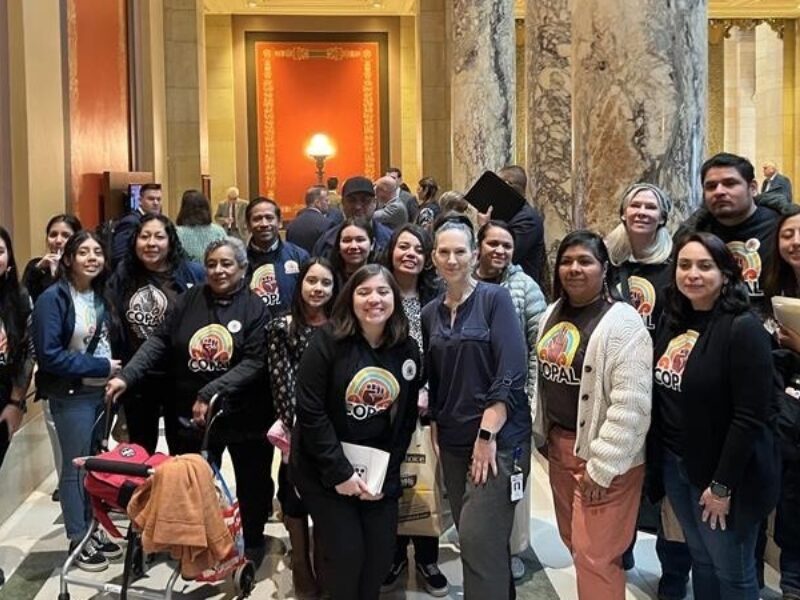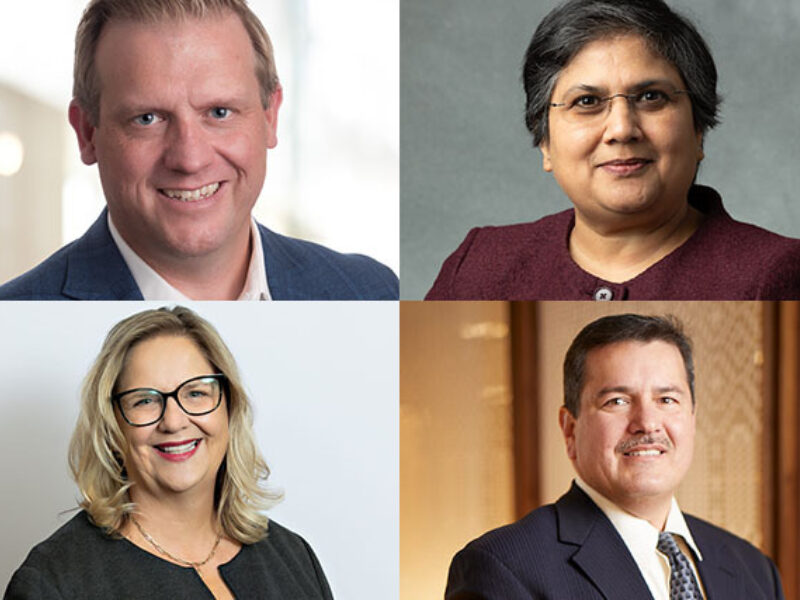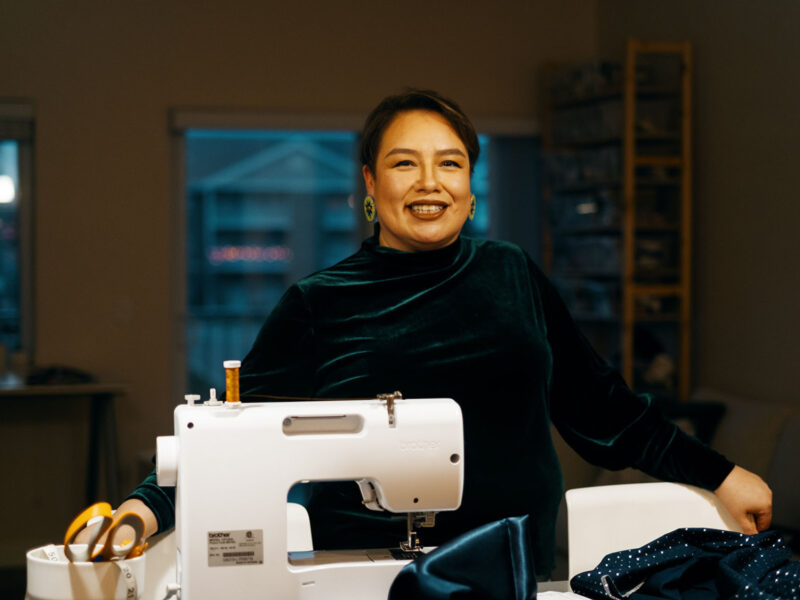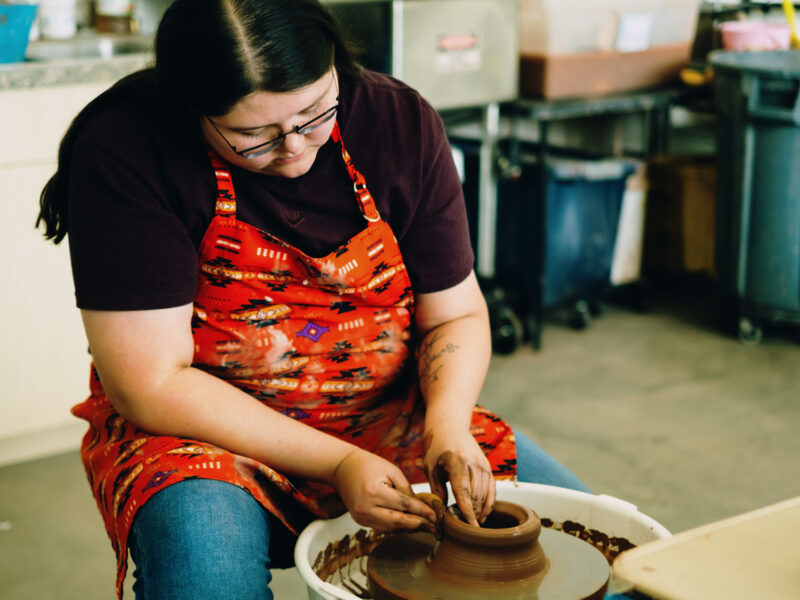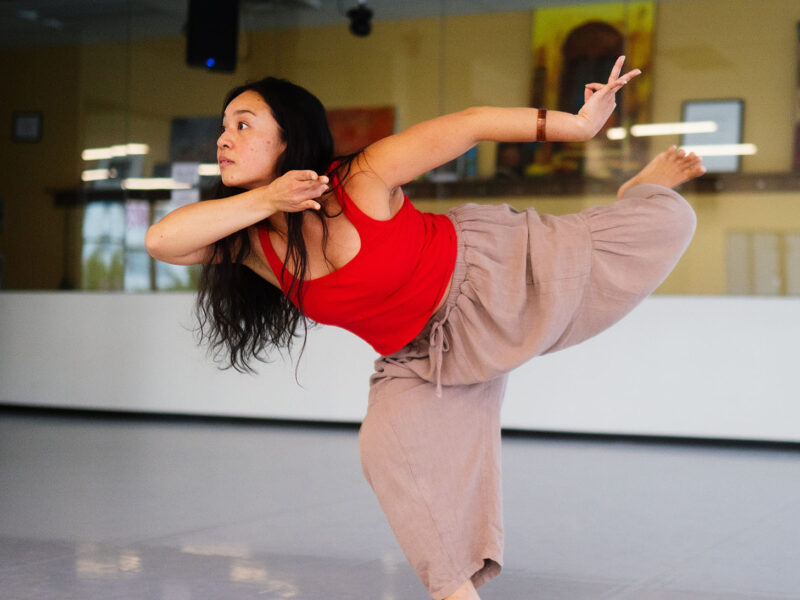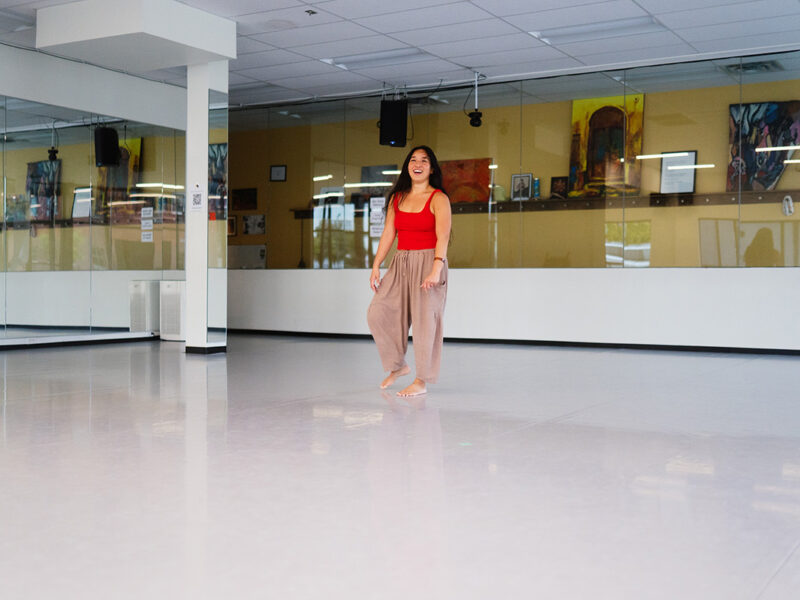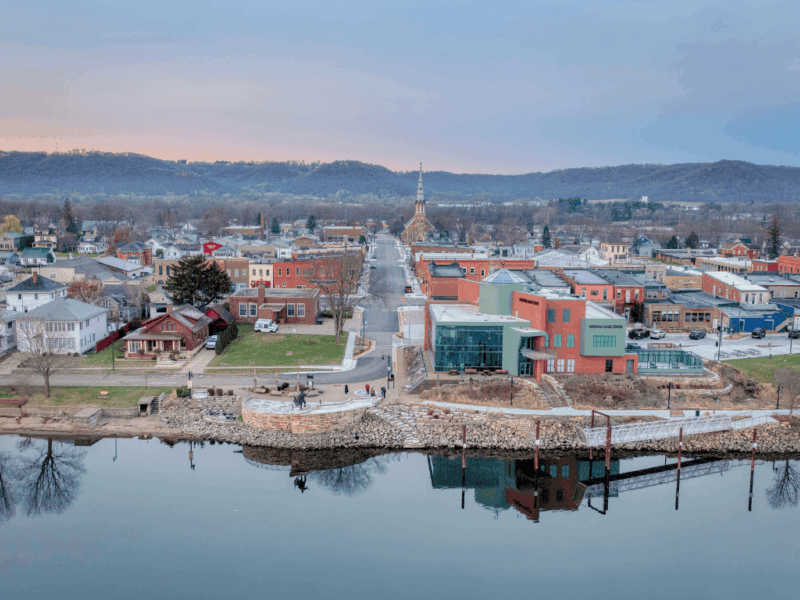Leslie E. Redmond organizes commemorative event for George Floyd and reflects on her work as an activist.

Memorial Day is a day where we honor the lives of those who died while serving in the military. It also marks the day the world took heed to the racial injustices that exist in Minnesota.
On May 25, 2020, George Floyd was murdered in broad daylight at the hands of police in Minneapolis. His death would be the spark of racial uprising not only in our state but our country. One of the people at the forefront of that work was Leslie Ellen Redmond.
The self-proclaimed “Kingdom Building Millennial” used her then-role as President of the Minneapolis chapter of the National Association for the Advancement of Colored People (NAACP) to ensure the voices of the community were heard.
As a humanitarian, advocate, activist, lawyer and radio host, she continues to show up and show out for Black people. Last year through her organization Win Back, Leslie established the Day of Remembrance to honor George Floyd’s life and celebrate community as we strive toward justice and healing.
We recently had the opportunity to talk to the 2020 Saint Paul & Minnesota Foundation Facing Race Award recipient about her community activism, as well as what she is doing to commemorate five years since the murder of George Floyd.
What inspired you to be an activist?
I always thought of myself as a servant leader. A lot of it was ignited growing up in D.C. My first love, Keith, and his best friend lost their lives three days before my 18th birthday as a result of police brutality. They were in a car full of young Black men when they were caught in a police chase that led to their demise.
What caused you to get involved in Minnesota?
It was really important for me to be on the frontlines. I moved to Minnesota for law school in 2014, right when Mike Brown was murdered and the Black Lives Matter Movement really took on a new meaning. And then in my second year, Jamar Clark was murdered. One of the biggest differences when I came to Minnesota was this state’s unwillingness to acknowledge that racism and discrimination existed.
How did the murder of George Floyd and others like him shape you as an activist?
They shaped me not only as an activist, but as a human. They showed me God wants to use me. When George Floyd was murdered, I was leading the Minneapolis branch of the NAACP. I knew God hadn’t given me all these blessings not to use them. So, I use my voice, my gifts and my talents for liberation. I think for me, it's just been confirming of why God put me here and kept me here, especially since finishing grad school and becoming a lawyer.
Photos from “Don’t You Feel It Too?", a 2020 Art In This Present Moment recipient. Credit: Chris McDuffie
Looking back on 2020, what was it like to do this work after the murder of George Floyd?
Even during a global pandemic that shut the world down, it felt like nothing could shut down white supremacy. What we saw is what always happens; there's some type of acknowledgement, some type of reckoning, and then a real pushback. It would be one thing if we'd been able to rest, reflect, process and grieve George Floyd after his murder, but we didn't even get through trial before another Black man was killed.
Last year was the inaugural Day of Remembrance. What can people expect this year?
God gave me the vision for the Day of Remembrance. I was reminded that we don’t remember, we repeat. At the event Brandon Williams, George Floyd’s nephew, was able to remember his uncle in a way that brought joy, including a scholarship in George Floyd’s name as well as others in the community. It was joyful to see the community band together, still fighting a good fight, elders celebrating, music and breaking bread.
This year’s Day of Remembrance is going to be similar, but with some differences. We'll start off in the morning with the interfaith prayer, followed by a brunch that is now open to the public.
Our brunch will feature a thought-provoking panel discussion moderated by the CEO of the Minnesota Humanities Center, Kevin Lindsey. Esteemed panelists include:
- Kenya McKnight – president and founder of Black Women Wealth Alliance and the ZaRah
- Valerie Castile – 2020 Facing Race Award recipient and mother of Philando Castile
- Adam Duininck – president and CEO of the Minneapolis Downtown Council
- Adair Mosley – CEO of the African American Leadership Forum
Following the brunch at 12:30 p.m. we're going to meet at George Floyd Square for a moment of silence, and for that evening, doors will open at 5 p.m. for Art Highlights, Art Heals, Art Activates at the Minneapolis Institute of Art where we’re doing an event centered on art and the powerful, important role that art has always played in the movement. Panelists for this event include:
- Tish Jones - 2024 Facing Race Award recipient, poet and founder and executive director of TruArtSpeaks
- Tristan Wilds – actor and singer
- Philli Ervin – visionary and artist
- Maya Marchelle – performing artist
With everything that's going on right now in the political climate, why is this day especially important?
I think in 2020 we saw a lot of people operating out of fear. And now again, in 2025 we're seeing a lot of people do the same thing.
When you operate out of fear, you don't get a real, consistent, authentic result, and you're not curious or courageous, you're more cautious. I think right now is a time for courageous leadership, and I think there's a time for us to shine.
What does liberation look like to you?
True liberation looks like freedom where every child is able to grow and to realize their God-given talents without being stifled, burdened or killed.






